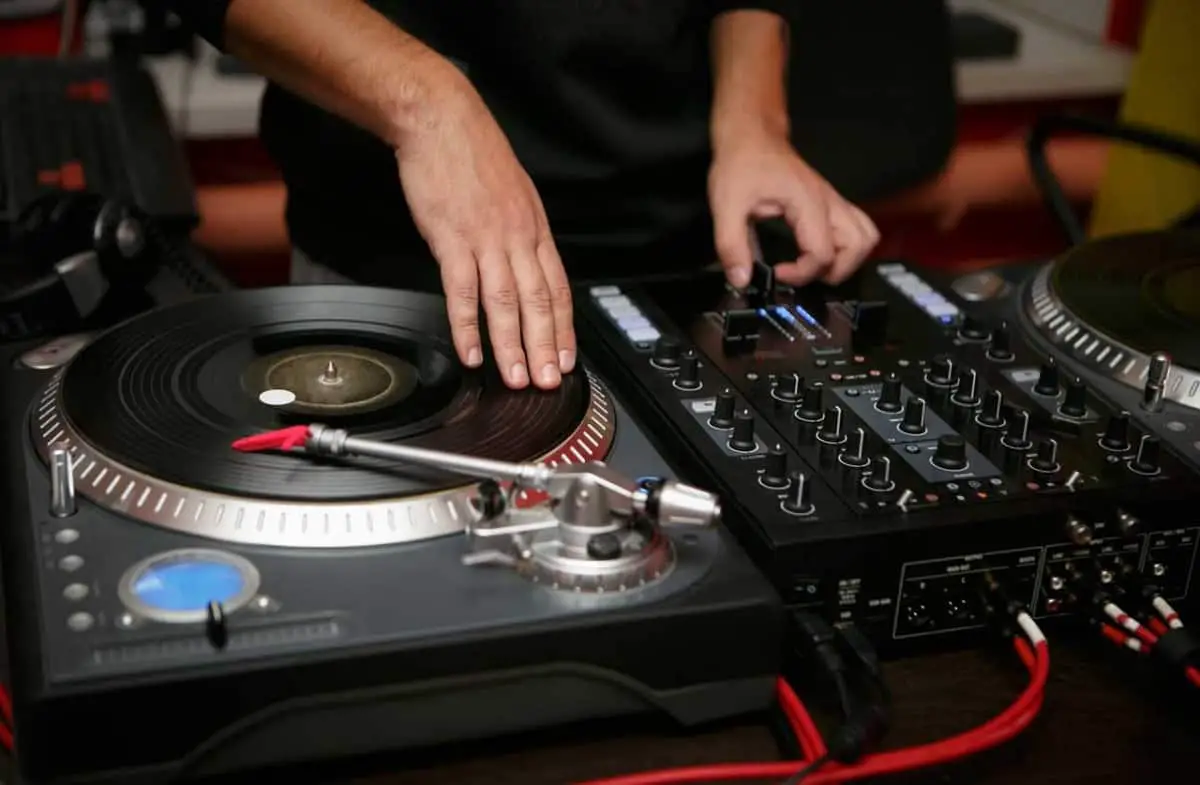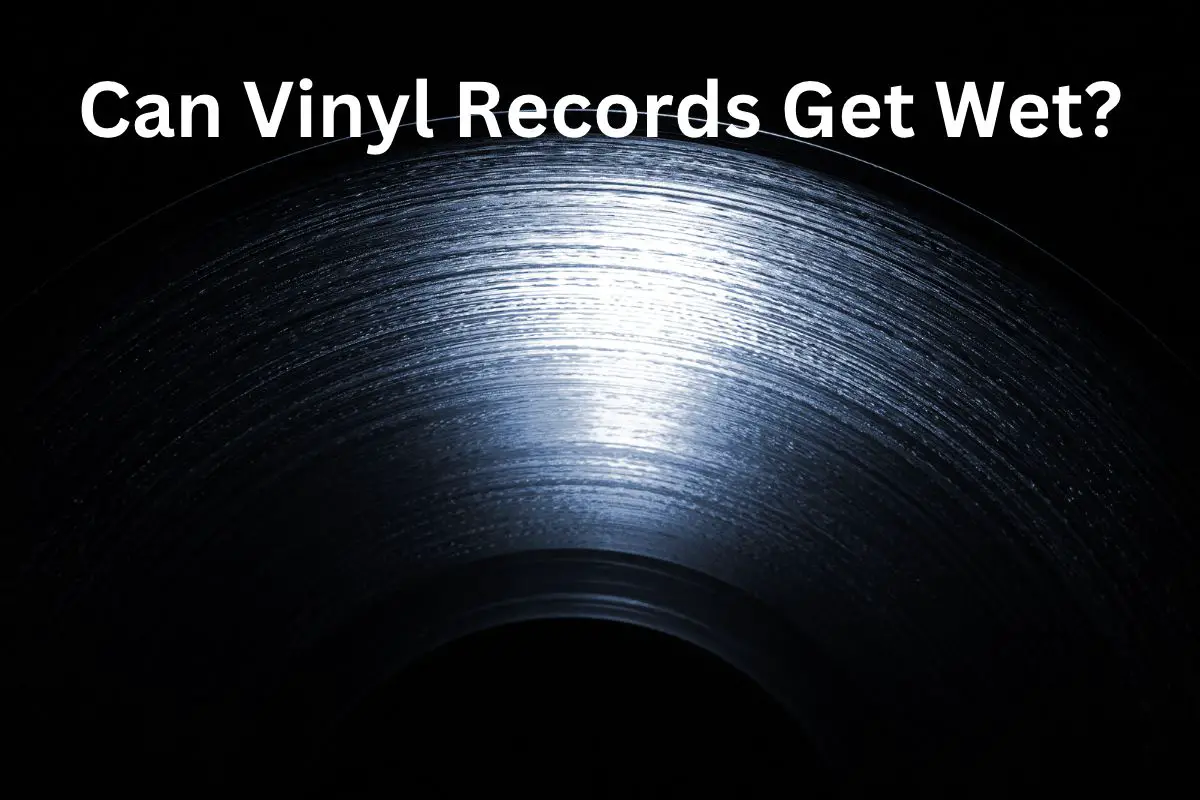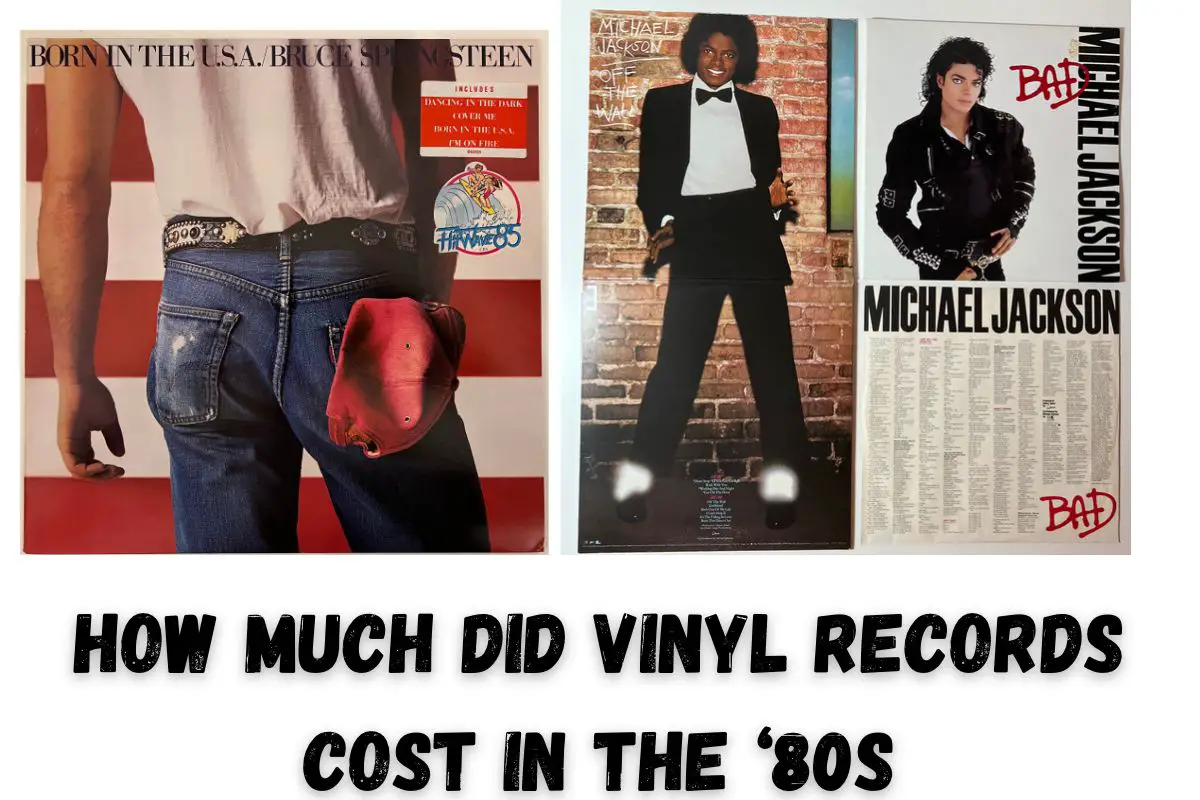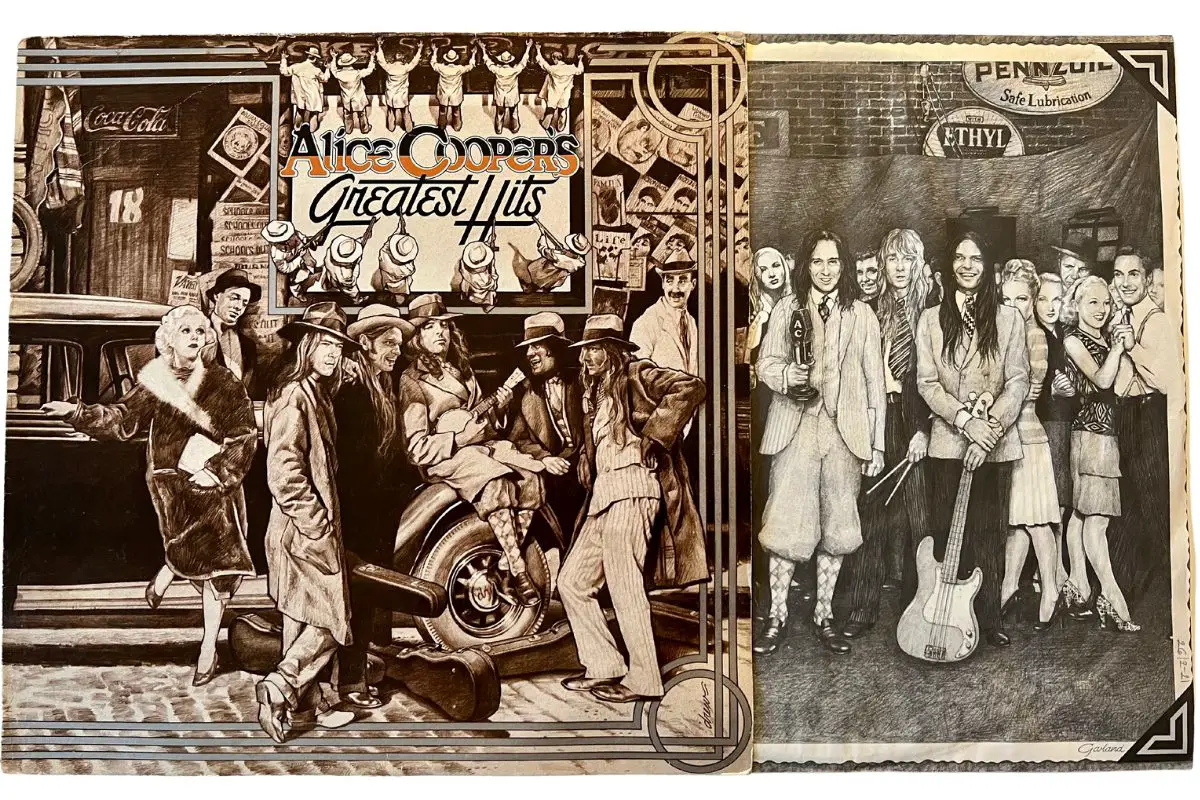This post contains affiliate links.
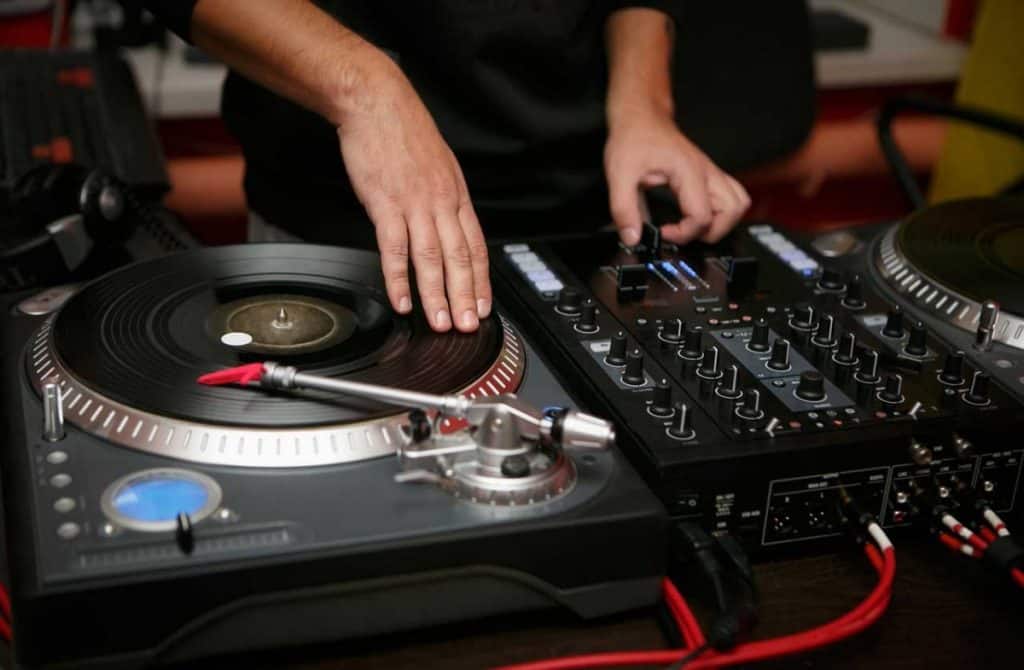
Does scratching damage vinyl? Vinyl records are pretty fragile. Moreso, if you’re starting and don’t necessarily know what you’re doing. You might be concerned about whether or not scratching is good or bad for vinyl records. Let’s find out.
The answer is yes; scratching will damage the vinyl record. However, vinyl records will inevitably get damaged with time, even without scratching.
Here’s how you can slow down the damage time:
- Clean your hands before putting them on the vinyl record.
- Use wax paper to reduce any friction during scratching.
- Use specialized needles.
If you’re looking for a vinyl maintenance guide, you’re in good hands. This article will guide you on scratching, its effects, and what DJs are doing to reduce vinyl record damage. Be sure to keep reading for lots of helpful information. Let’s get this spinning!
Table of Contents
Does Scratching Damage Vinyl?
As shared earlier, yes, scratching will damage your vinyl records. There are no two ways about it. Vinyl records consist of PVC (polyvinyl chloride), which translates to plastic.
They are thin round plastic contraptions that can generate sound with the right tools. They are prone to warping, melting, and scratching if you expose them to anti-vinyl record conditions.
It’s why some vinyl records can cost up to $2000. Vinyl records are fragile, and with time they do start to wear out. Scratching increases the wear-out time, but there are ways to mitigate it. Firstly, let’s get the definitions out of the way.
What Is Scratching?
In my experience, when you’re playing vinyl records on an everyday basis, the stylus tends to move across the grooves on a vinyl record. However, when you position the stylus or needle in the groove, that’s called scratching.
DJs do this positioning to get that repetitive sound. Scratching is an art form. Not everyone can do it, and it is one of the fundamental skills of truly great DJing. However, it doesn’t take from the fact that it damages vinyl records.
What Do You Want From Your Vinyl Records?
Before getting into the nit and grit of scratching, it’s best to outline the different record owners’ needs regarding their vinyl. As shared above, scratching is an art form to some and not to others.
- Are you looking to get into the DJ scene? If so, you’ll need the tools such as pitch control turntables that DJs optimize for scratching. With this path, you’ll have to consider the scratch life of your vinyl records, but a damaged vinyl record will ultimately be the trade-off to the scratching. Art must persist.
- Are you an audiophile looking for a high-fidelity sound production? If so, your vinyl record and turntable maintenance might be out of this world. You’re looking far from scratching into more classical vinyl record playing to get that specific result you’re looking for in your needs.
- Lastly, Are you intrigued with the whole concept of vinyl records (maybe you’re just starting), and do you need a simple set-up? If so, you want some music to listen to from a turntable or record player. For you, as long as it doesn’t make noise for anyone else in your surrounding, it’s all fine and dandy.
It’s essential to note down what exactly you want from a turntable or a record player. Through that, you can understand where you lie on the scratching spectrum.
Not only that, but you can get the vinyl record equipment suited for you. It’s a win-win situation when you sit down and narrow down what exactly you want.
It’s like ice cream; sometimes, the fancy handmade ice cream is your forte, and other times, store-bought will do the job to get you through the summer.
Is It Bad To Play A Scratched Vinyl?
Experts do not recommend playing a scratched vinyl whether you’re a DJ or either of the other two mentioned above. It will destroy your stylus or needle. You always want to care for every single part of your record player or turntable.
If you’ve noticed scratching sounds coming from a particular vinyl record, it’s high time to handle the situation. Fortunately, you can fix scratched records. Keep reading on how you can fix your scratched records.
Alternative Scratching Methods
Thanks to the human brain and advancements in technology, there are different types of software that you can use to mimic scratching. That is if you’re looking to DJ.
The software comes with the entire set-up on your screen for you to recreate the scratching process. You could consider this method as training wheels because eventually, you’ll have to work with vinyl records physically, and that will take a lot of time, mistakes, and practice. No one gets it right the first time.
Can You Fix Scratched Vinyl Records?
Firstly, experts do not recommend that everyone use this method. If you have a scratched record near and dear to your heart, do not try this method. If you do decide to try this method, it’s pretty, unfortunately, your responsibility.
If you would like to fix your scratched vinyl record, then try a wet melamine foam brush. How do you do it?
Step 1: Clean the vinyl record first. You want to get rid of any dust or dirt on the surface of the vinyl record. Everyone has different cleaning methods, so use the method you feel gets the job done.
Step 2: Use either distilled or deionized water to wet the melamine foam brush. Make sure that you squeeze out any excess water. Remember your goal is to reduce any damage on the vinyl record as much as possible.
Step 3: Gently scrub the groove or the area where the scratch is present. Be careful with your vinyl record. They are pretty fragile. Would you please not put your back into it? A gentle scrub will do the job.
And voila, you’re done! Please note that this method won’t work all the time. The scratching noise may subside with time, but the odds are unfortunately not stacked in your favor.
The ultimate advice would be to care for your vinyl records to a T. Clean them before and after use, clean your stylus or needle, and ensure that anything that comes into contact with the vinyl record is dust or dirt-free.
Helpful Vinyl Record FAQs
1. Is It That Bad To Touch A Record?
If you’re a DJ, you will inevitably touch the vinyl record while playing. It’s part of the process. However, if you don’t have the DJing skills, it is not recommended to touch the viny record while playing.
You risk damaging the entire set-up and, most significantly, damaging the vinyl record to the point of no return. Keep your hands to yourself if you don’t have the skillset for it.
Also, make sure that when you are handling the vinyl record, your hands are clean. The goal is to ensure that any dirt or dust doesn’t get on the record’s surface.
2. How Bad Is An Old, Scratched Vinyl Record To A Needle Or Stylus?
On a scale of one to 10? Ten being the harbinger of doom? You could give it a ten. Needles are incredibly fragile, and without the needle, you wouldn’t be able to play any music from your record player.
Please note that the sound that may come from the record may not be ideal. It would be best to set it aside. Either fix the record or get a new one.
3. If Some Turntable Needs Consist Of Diamond, How Come It Doesn’t Scratch The Vinyl Record?
Manufacturers designed vinyl records to follow a specific path or track. If the needle goes off track, you best believe that it will scratch the vinyl record. So, as long as it doesn’t stay off the track, no scratches, but the results will not be pretty if it does go off track.
Sources
- Jenna Miles, The Beginner’s Guide to Vinyl Records: How to Build, Maintain and Experience a Music Collection in Analogue (Massachusetts: Adams Media,2017) Accessed August 13th, 2021.
- Discogs, Turntable 101: How To Set Up Your Turntable Correctly, Discogs, https://blog.discogs.com/en/how-to-setup-your-turntable/ Accessed August 13th, 2021.
- David, Learn how to scratch today: Top DJ scratching tips for beginners, DJiing Pro, https://djingpro.com/learn-how-to-scratch/ Accessed August 13th, 2021.
VacationVinyl.com is a participant in the Amazon Services LLC Associates Program, an affiliate advertising program designed to provide a means for sites to earn advertising fees by advertising and linking to Amazon.com. We also participate in other affiliate programs which compensate us for referring traffic.

